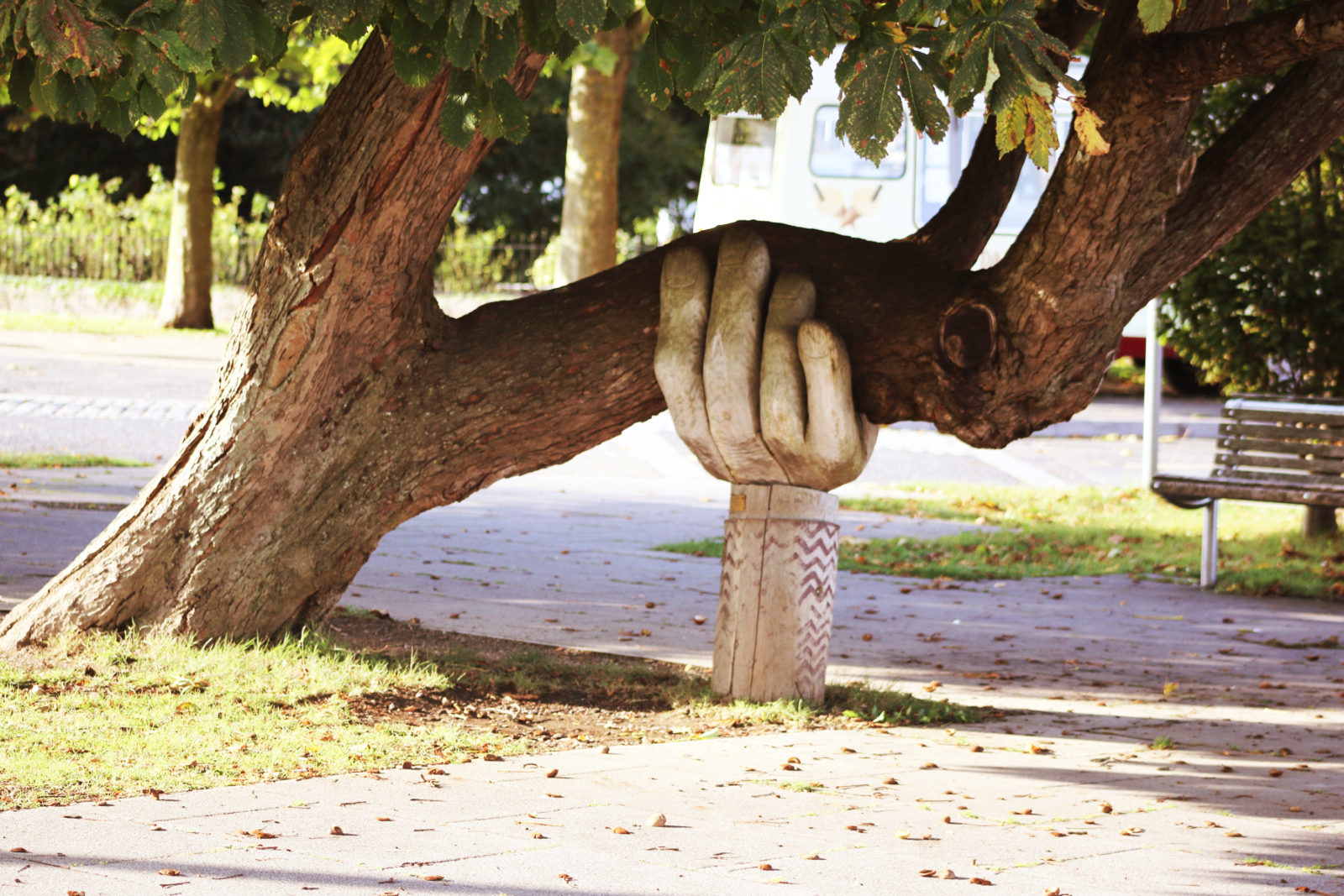The point of this month-long conversation about discernment is not, surprisingly, to torture you. Or bore you. It’s not to make you twitchy or even put you to sleep. It’s because being deceived is the opposite of discernment.
Deception is a serious thing, and because of how God made us, it’s a particularly high risk for women. That isn’t a judgment. Or a condemnation. It’s just a reality. One we can take specific steps to combat. And we’ll get into all of that in the coming days, but for today, let’s just look at the two realities separately.
Flip Sides of the Coin
Deception and discernment are, basically, opposites. But not like black and white. Or dogs and cats.
We don’t do ourselves any favors when we think of these two like rooms in a house. You can’t be in the bedroom and the kitchen at the same time. We know this. But deception and discernment don’t work like that.
Deception and discernment aren’t places. They aren’t end results. They aren’t, either one, something you totally arrive at. They’re the manner by which you walk the path.
Which means that you can’t just lock yourself in the Discernment room and be safe there. Drawing more and more hard lines doesn’t necessarily prevent you from being deceived. And, on the flip side, some people who are deceived in some areas actually believe some truth in other areas.
Being deceived is the opposite of discernment, but isn’t always cut-and-dried.
Looking Deeper at Deception
In some ways, deception and discernment are quite similar. They are both ways of thinking. They’re habits and behaviors. They are paths we’re on, and to be honest, we can jump back and forth between them all the time. And we do.
Both deception and discernment are a combination of what we believe and how we act. Because those two realities are always connected in real life.
Whatever we believe will become evident in our life. And the more faithfully or consistently we apply some particular “truth,” the more it shapes our everyday life: what we post online, what books we read or don’t read, and who we agree or disagree with. We behave and draw conclusions based on that idea. Our choices, our likes or dislikes, and our judgments of other people will be affected.
The difference between the two, then, isn’t how we behave. It’s how we see.
How We See
Deception is very firm. So at first glance, it looks more stable. But it’s “truth” tends to be very surface level. It sounds good, but doesn’t hold up to scrutiny. It’s shiny and sequined, and as long as you don’t look closer, you’ll miss the duct tape and hot glue holding it together. So deception doesn’t allow for questions very often. You aren’t supposed to wonder. Just believe it. Just receive it. It makes you feel good, so how wrong can it be?

Discerning, on the other hand, doesn’t take much of anything at face value. So, at first, discernment seems unstable and cranky. It’s suspicious. It slogs through the mess and examines the “proofs” instead of skirting around them and assuming the logic holds (which means it can be boring).
And Biblical discernment does even more. It evaluates what we believe and what we hear, not just for good logic and strong support, but by comparing it to God’s Word. Since what we believe (not just what we say we believe) will flow out into our real life, the discerning person demands we take the time to get it right.
What Deception Looks Like
Being deceived is the opposite of discernment. But even though I just described them very differently, in real life, it’s sometimes hard to tell them apart.
Truly it is.
Because the woman who is deceived may very well
- show up to Bible study every week with all the homework done.
- watch all the videos and listen to all the podcasts.
- share the viral meme from a respected Christian teacher.
- or, be a more faithful servant, more dedicated volunteer, and more genuinely kind neighbor than anyone else we know.
But, ladies, that doesn’t mean she’s not deceived. More likely, it means she’s unaware of her deception.
And that’s the real problem: deception doesn’t announce itself.
Both Deceived and Convinced
That is why deception is so dangerous. It doesn’t wave flags and draw attention to itself. In fact, it can seem so holy we don’t even question it.
It slips in quietly. It twists a single verse. And then another. Soon, we’re interpreting all of Scripture from a deceived perspective. And as a result, we draw, and live out, unbiblical conclusions.
Too many women are trapped in the enemy’s deceit. And it’s not okay. But it isn’t easy to escape, either.
Being deceived is the opposite of discernment. That’s why learning discernment is so important. And that’s why I get so fired up about the whole thing.
We can do better. We must do better. Because too many women are lost in what they are convinced is the truth. And they are lost in lies.



